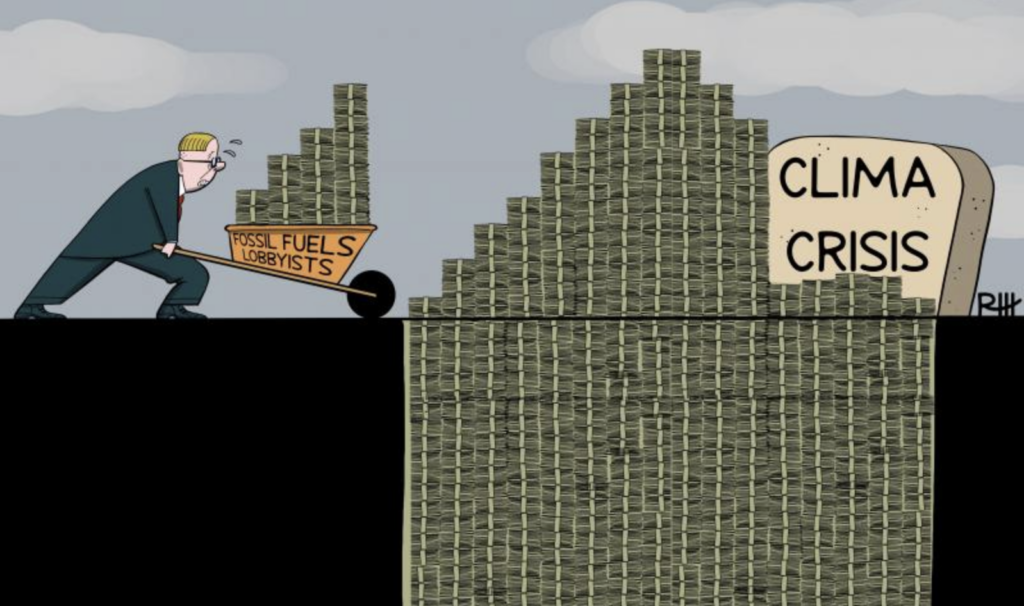A new report from the Energy and Policy Institute reveals the fossil fuel- and utility sector-funded network working to curb the proliferation of renewable energy in the United States.
Co-authored by Gabe Elsner and Matt Kasper and titled, “Attacks on Renewable Energy Policy in 2015,” the 86-page report shines a spotlight on the bevy of coordinated attacks on renewable energy policy happening in 27 states across the nation.*
The report examines how this network flexes its muscle and advances corporate interests in statehouses nationwide.
Look no further than the State Policy Network (SPN), an entity created by the American Legislative Exchange Council (ALEC) corporate bill mill, which acts as the central hub around which the rest of the spokes in the think-tank (or “stink tank”) and public relations wheel connect. Both of these groups play a central role in the report.
“Once ALEC model bills are introduced, allied legislators and fossilfuel-funded front groups cite flawed reports to back up their reasoning to either repeal or weaken” laws favorable to advancing renewable energy, the report explains. “[Thereafter], State Policy Network lobbyists…[provide] testimony in favor of the ALEC bills. Finally, fossil fuel-funded members groups, such as Americans for Prosperity, put additional pressure on lawmakers to pass ALEC model bills.”
But ALEC and SPN are just two examples and although they play a pivotal role, the report points to 23 other industry-funded front groups also part of the anti-renewable influence peddling machine. Others include names familiar to DeSmog readers, including the Koch-funded Americans for Prosperity and Institute for Energy Research, the Heartland Institute and Consumer Energy Alliance (CEA) and others.
Not Just Money in Politics, Lobbying
The report has citation after citation raising dire questions about the state, and often lack thereof, of U.S. democracy. But just as important is the premise it presents.
In a nutshell, it’s not just about money in politics and lobbying alone.
It’s that these industry-funded front groups play a central role in shaping the public narrative, providing cover to industry-funded politicans to do the bidding of corporate interests in statehouses nationwide, and thus shape the body politic at-large.
“While corporate interests also lobby politicians and regulators,” they write, “these front groups serve a fundamental role in these assaults by adding a supposed independent, anti-clean energy voice to energy policy debates.”
The back-drop to all of this, of course, is climate change. And among the chief drivers of global warming are the same fossil fuel and utility industries that fuel this PR machine with their money to begin with. At the end of the day, they fear a major challenge to their corporate bottom lines.
“Utilities and fossil fueld companies are alarmed at what the clean energy boom will do to their market share as the economics of [scale of] clean energy see continued improvementment year after year,” the report states early on. “As a result, the fossil fuel and utility industries have launched efforts to protect vested financial interests by repealing and weakening these laws through state legislatures and regulatory agencies.”
It’s a report with troubling findings, no doubt, but one well worth the read and keeping bookmarked as a go-to reference.
Image Credit: Wikimedia Commons
* This post has been corrected to note the report looked at 27 states, not all 50. I regret the error.
Subscribe to our newsletter
Stay up to date with DeSmog news and alerts







